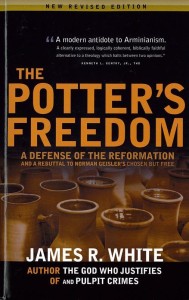 In an article at ligonier.org fallible or infallible, inspired or uninspired? What’s all the fuss about the doctrine of inerrancy? Why do Christians debate this issue? What difference does an inerrant Bible make?
In an article at ligonier.org fallible or infallible, inspired or uninspired? What’s all the fuss about the doctrine of inerrancy? Why do Christians debate this issue? What difference does an inerrant Bible make?
Before answering that question, we should consider in what way inerrancy doesn’t make a difference. The Chicago Statement on Biblical Inerrancy states:
We affirm that a confession of the full authority, infallibility and inerrancy of Scripture is vital to a sound understanding of the whole of the Christian faith. We further affirm that such confession should lead to increasing conformity to the image of Christ. We deny that such confession is necessary for salvation. However, we further deny that inerrancy can be rejected without grave consequences both to the individual and to the church (Article 19).
The statement strikes a delicate balance. It affirms that the doctrine of inerrancy is “vital to a sound understanding of the whole of the Christian faith” and that to deny it has grave consequences for the individual and the church. However, this statement also makes clear that belief in inerrancy is not necessary for salvation. While inerrancy is crucial for understanding the Christian faith and “increasing conformity to the image of Christ,” a person does not have to hold to it to be a Christian.
The Authority of Christ
But what difference does the inerrancy of Scripture make? Why does it matter? There are many ways in which it matters a great deal. However, ultimately, the inerrancy of Scripture is not a doctrine about a book. The issue is the person and work of Christ.
Allow me to illustrate. Years ago I was speaking in Philadelphia on the question of the authority of Scripture. After my lecture I came down to the front of the church, and I saw a man making his way toward me. Instantly, I recognized his face, even though it had been about twenty years since I’d seen him last. His name was Charlie. We were roommates in college and prayer partners. We made our way through the crowd and embraced one another.
We dismissed ourselves from the conference and went out for dinner. As we sat down, Charlie said to me, “Before we have a conversation, there is something I have to tell you.” I said, “What’s that?” He told me, “I don’t believe any more what I used to believe about Scripture when we were in college together. Back then I believed in inerrancy, but I’ve been to seminary and have been exposed to higher criticism. I just don’t believe that the Bible is inerrant anymore. I wanted to clear the air so that we can go on from there.” I replied, “Fine, Charlie, but let me ask you this. What do you still believe from the old days?” And triumphantly Charlie said, “I still believe that Jesus Christ is my Savior and my Lord.” I was happy to hear that, but then I started to ask questions that clearly made Charlie uncomfortable.
I asked, “Charlie, how is Jesus Lord of your life?” He replied, “What do you mean?” I said, “Well, a Lord is someone who exercises authority over you, who gives you marching orders, who has the ability to compel you to obey, and who requires you to submit to obligation and duty. If Christ is your Lord, aren’t you saying He has sovereign authority over you?” “Yeah,” he said. Continue reading

